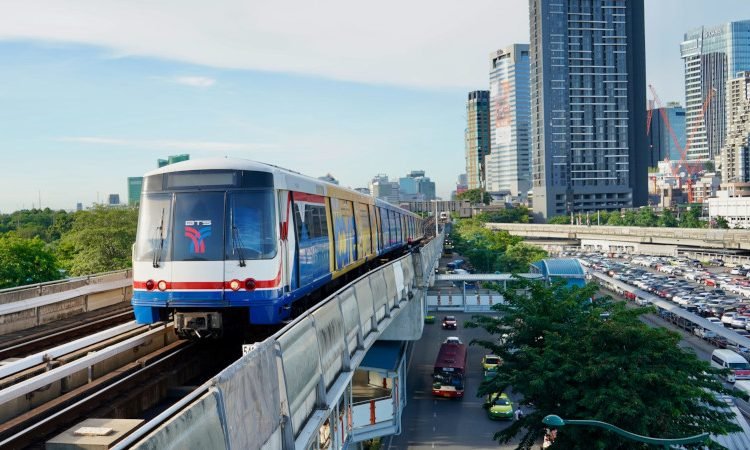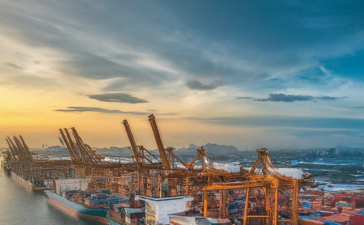Bangkok Mass Transit System Plc (BTSC), the operator of the city’s skytrain, is branching out into the property sector with a B10bn investment plan to build three hotels. This move aims to strengthen the company and prepare for uncertainties after the skytrain concession expires in the next 20 years. The new developments will target tourists and business travelers, offering luxury accommodation options in prime locations near the BTS Skytrain stations.
BTSC’s Foray into Property Development
BTSC’s CEO, Keeree Kanjanapas, believes that the property business is the right avenue for generating long-term income and creating valuable assets for the company. With his extensive experience in the property industry, he also sees the current investment cost as very affordable compared to boom periods. The Thai economy’s potential for growth can support this new venture if politics do not hinder progress.
Three Hotels Set to Transform BTSC’s Portfolio
The planned hotels include The Four Points by Sheraton, currently under construction on Sathon Road, next to the Surasak BTS station. This 437-room hotel is set to be completed by 2011 and will be managed by Starwood Hotels & Resorts Worldwide. Additionally, two new five-star hotels will be built at the Nana and Phayathai stations, named The Langham Sukhumvit Bangkok and Langham Place Phayathai, respectively. These properties will be the first in Bangkok for UK-based Langham International.
According to Keeree, the three hotel brands were chosen because they offer new experiences to guests. BTSC aims to develop hotels that will become classics, much like The Mandarin Oriental Hotel Bangkok. Apart from hotel development, BTSC also plans to build residential projects with a budget of B7.5bn.
Projected Revenue Growth and Future Plans
BTSC anticipates a 10% revenue increase this year, primarily due to the rising number of BTS passengers, which is expected to reach between 390,000 and 400,000 people per day. The company is also set to issue debentures to raise B12bn, with part of the sum allocated for repaying debts and the rest reserved as cashflow. Furthermore, BTSC plans to seek a listing on the Stock Exchange of Thailand (SET) in the last quarter of this year, floating 25% of its registered capital to fund future railway extensions.
So, BTSC’s diversification into property development with a B10bn investment in three luxury hotels demonstrates the company’s strategic approach to creating long-term income and assets. As the BTS Skytrain operator ventures into the hotel and residential sectors, the company is set to capitalize on the growth potential of the Thai economy and strengthen its position in the market.






